- SAFEGUARDING
Cultural heritage is today engulfed by threat, development and change – therefore, actors in the field need to understand the social, legislative and planning context in which cultural properties, buildings as well as cultural landscapes in the Middle East struggle to survive, for the sake of protecting it from crisis situations.
BILADI has recognized the important role of trainings for all involved parties who come into contact with Lebanese heritage such as the Lebanese Armed Forces, UNIFIL, the Directorate-General of Antiquities, municipalities, or civil society. Foster the protection of cultural heritage in Lebanon and train relevant personnel has become a long-time mission of BILADI. Following an extensive approach, projects with the focus on safeguarding heritage familiarize civilians as well as the military with key elements, challenges and opportunities of the field to enhance fundamental skills and knowledge about the work with cultural heritage. The overall purpose is to bring professionals together with one broad objective in mind: how to strengthen the tools which allow civil society and concerned officials to identify threats on heritage and to fight for its preservation.
PROJECTS
Beirut Operation – Securing Cultural Heritage After An Emergency
Time Frame: August – November 2020
In the framework of the “Blue Shield Emergency Response – Beirut Operation”, BILADI in cooperation with a network of partners, secured and protected Beirut’s cultural properties, especially historic houses, after the port blast of 4th August 2020.
This necessary mission of safeguarding historic houses was of major significance because such buildings are part of the Beirut’s cultural heritage. They have an irreplaceable value at cultural, artistic, social, identity and symbolic levels, and are an essential element of the architectural landscape of the Lebanese capital. The “Blue Shield Emergency Response” was implemented for 15 damaged historic houses located in the area of Medawar-Rmeil-Achrafieh-Saifi.
Media: Blue Shield International, 6 November 2020
Publication: Final Report
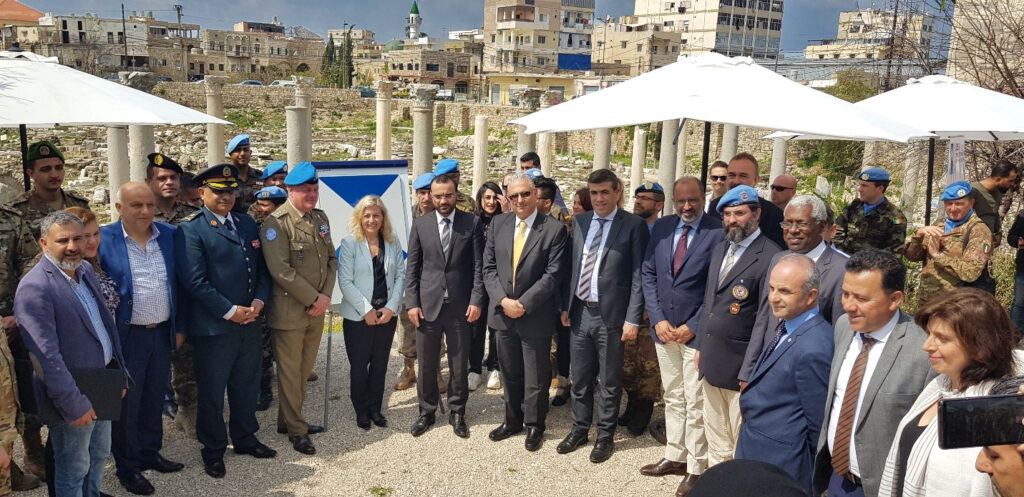
UNIFIL Cultural Property Protection (CPP) Training
Time Frame: April 2019 / next: March 2021
In order to train UNIFIL and related professionals from the field, a CPP training was held at the UNIFIL headquarters and the World Heritage Sites in Naqoura and Tyre.
In partnership with Blue Shield International and funded by the Norwegian Embassy in Lebanon, 30 participants composed of UNIFIL, the Lebanese Armed Forces, the DGA and the municipality of Tyre received a comprehensive training about cultural properties as well as rules and protections when it comes to their protection in order to implement the right measurements for protecting cultural heritage at all times. In addition, a cultural protection property action plan for emergency situations was elaborated. An updated version of the training will be conducted in 2021.
Media: UNIFIL News, 12 April 2019
Publication: Final Report
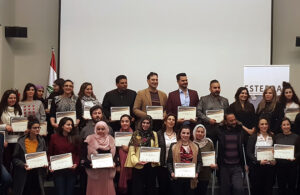
ESTERDAD
Time Frame: 2017 – present
To fight the illicit trafficking of cultural objects, professionals of the field are getting trained in the framework of ESTERDAD.
In collaboration with Blue Shield International and funded by the Norwegian Embassy in Lebanon, the project aims at establishing specialized, professional networks in Lebanon, Syria, and Iraq to investigate and disrupt the trafficking of cultural objects in order to work closely with law enforcement as well as juridical authorities to secure the repatriation of trafficked objects. This training program aims at building capacity to oppose the trafficking of antiquities by explaining the organization and operation of the antiquities market, informing about national/bilateral agreements, international laws and conventions that are available to control the trade, and by outlining the work of law enforcement in tackling the trade and recovering trafficked objects.
Media: L’Orient-Le Jour, 16 February 2018
Publication: Final Report
———————————————————————–
- AWARENESS
In today’s fast-moving world, globalization poses a big threat to tangible and intangible heritage that was passed on from generation to generation over centuries. Old traditions tend to disappear taking with them the only direct links to our ancestors. In order to connect people with their roots, this program set a focus on projects that preserve traditions and raise awareness to the important relationship between the past and the present.
BILADI implemented projects that make use of the very rich culinary heritage of Lebanon as a tool to strengthen the communities’ ability for self-sufficiency, provide food security and to carry traditional foods into the 21st century. BILADI conceptualized these trainings as a non-formal, personalized, alternative education system and worked mainly with vulnerable adolescents. As a result, direct links to local heritage are reinforced and in addition, heritage becomes integrated as means for beneficiaries to support themselves financially in their communities.
PROJECTS
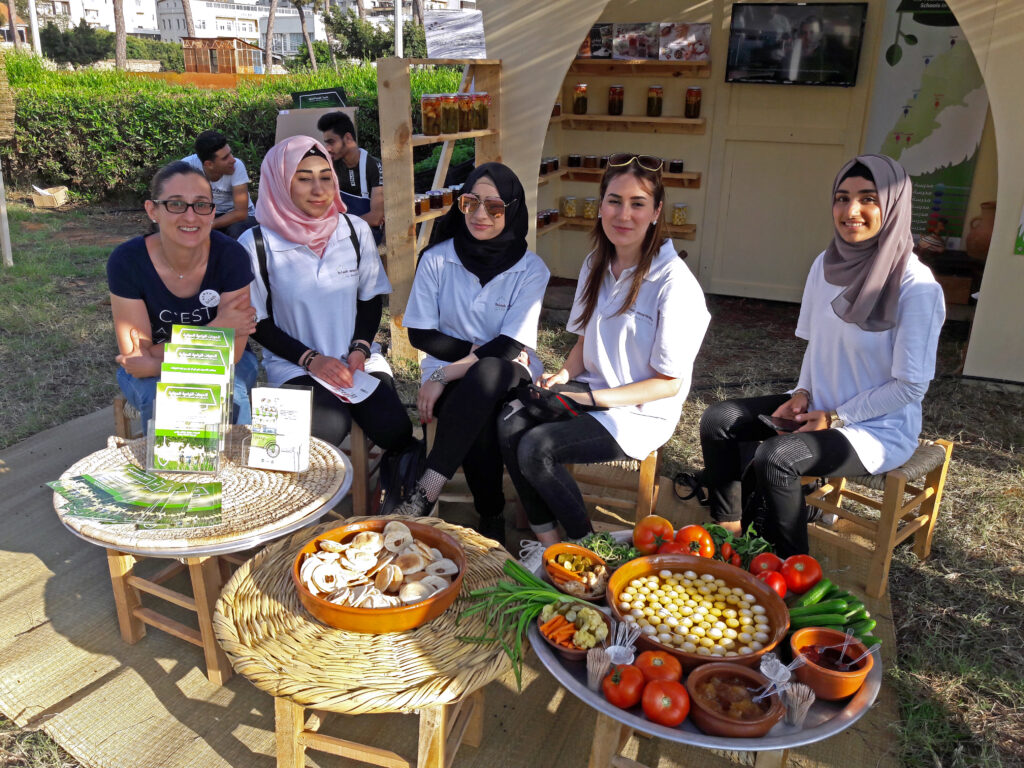
AVOCADO – Agricultural Vocational Education and Training for Vulnerable Adolescents in Lebanon
Time Frame: March 2016 – present
The project offers vocational trainings for students from vulnerable communities to make them discover agricultural heritage and help them becoming self-sufficient.
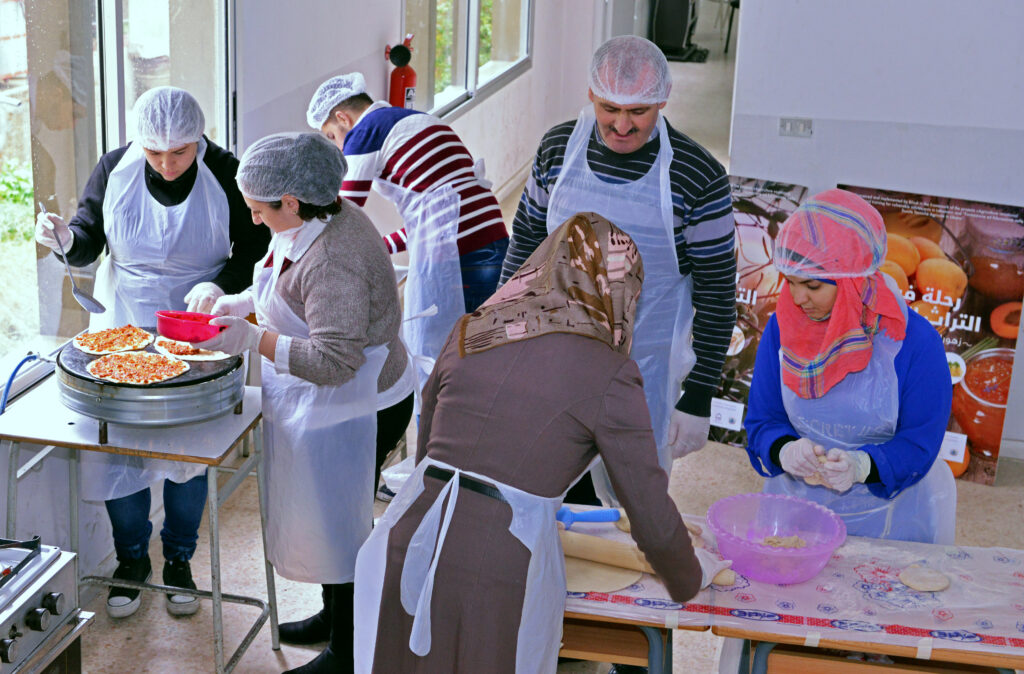
In cooperation with AVSI, BILADI conceptualized and implemented AVOCADO as a non-formal, alternative education system in seven agricultural vocational schools in Lebanon (Nabatiyeh, Khiam, Fanar, Batroun, Nasriyet Rizk, Abdeh, Baakline) as well as in various external centers in these regions. The program consists of two parts (“Modern Mouneh for Resilience” and “Koudourat – Heritage for Resilience”) and modernizes traditional food production to transmit it to the next generation. More than 2500 underprivileged young participants between 15 and 25 years have benefitted of the know-how to produce quality traditional products at a fairly low cost. This knowledge restores the transgenerational relationship to the beneficiaries’ ancestors and creates pride of their own roots. It also revives the concept of self-sustainability in food production and opens the door for a possible income generating activity.
Media:
No to the Illicit Trafficking in Antiquities!
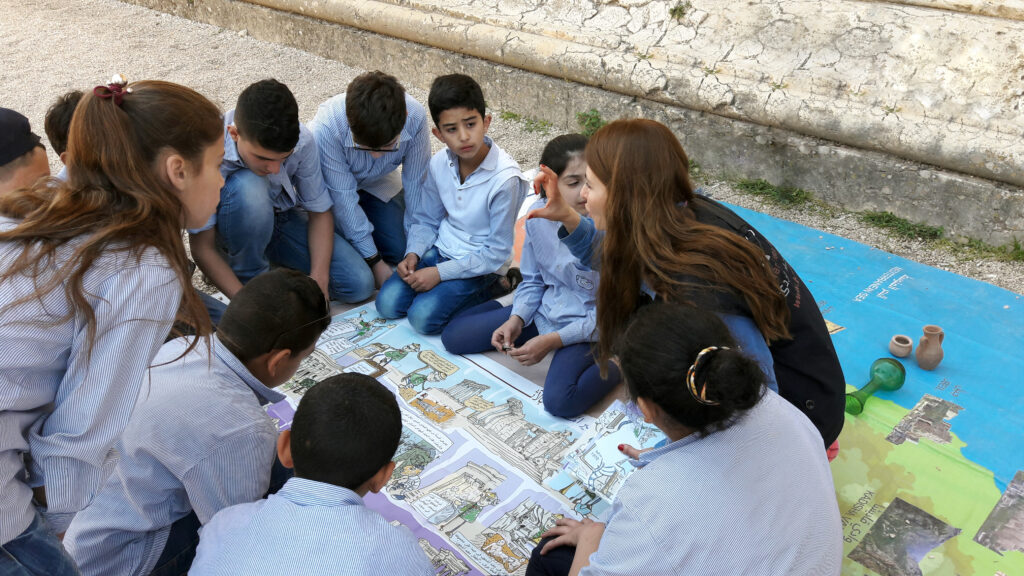
Time Frame: November – December 2016
Workshops about the illicit trafficking in antiquities were organized for teachers and students in order to increase awareness in schools.
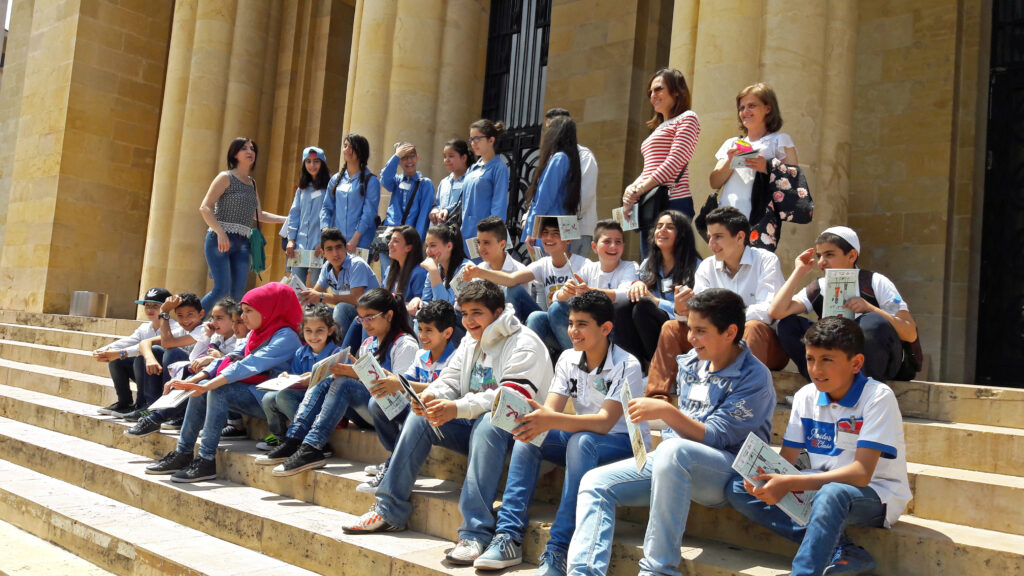
Funded by the UNESCO Office in Beirut, six workshops were organized in Anjar, Tyre, Baalbek, Jbeil and the National Museum to increase students’ awareness about the importance of fighting the illicit trafficking in cultural property and train teachers on educational material to bring the project into their schools. More than 1600 students from 10 to 15 years participated in the workshops.
Media: UNESCO Documentary, 2017
#UniteForHeritage
Time Frame: September – November 2015
To increase the awareness of Lebanese students about the protection of heritage in war times and educate them about UNESCO conventions, workshops and a Social Media campaign were initiated.
Funded by the UNESCO office in Beirut, BILADI organized eight workshops for more than 1600 students from 11 to 15 years in Tyre, Baalbek, Jbeil and the National Museum. Social Media platforms were used to send messages of unity and solidarity, and to create a global movement for protecting and safeguarding heritage under threat in the Middle East and elsewhere.
Media: UNITE4HERITAGE
————————————————————————-
- EDUCATION
BILADI has been organizing educational trips such as on-site tours and workshops aiming at familiarizing children and teenagers with their heritage from the day it was founded. Thousands of students from private and public schools have taken part in BILADI’s school trips and broadened the knowledge of their country’s history through playful activities and outings. All these projects serve the same purpose: enabling children to discover their natural and historical heritage, their history, and their traditions. These activities have contributed to the children’s attachment to their common heritage and their awareness about the importance of preserving and protecting it.
PROJECTS
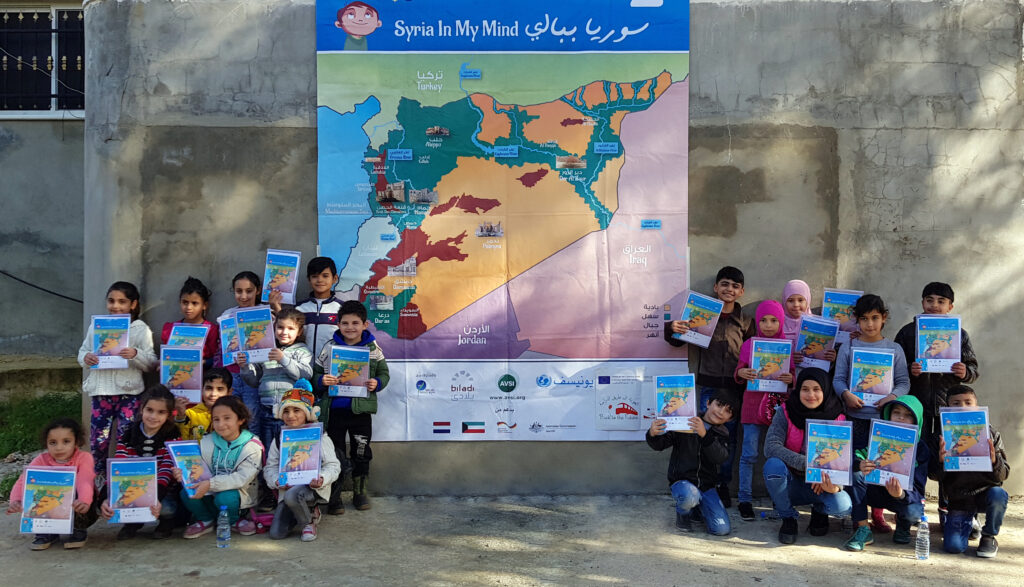
Syria in My Mind
Time Frame: 2014-2015, 2019 / next: 2021
In response to Lebanon’s refugee crisis, BILADI has initiated a project that make Syrian refugee children discover the wealth of their heritage in order to build a positive image of their war-torn country.
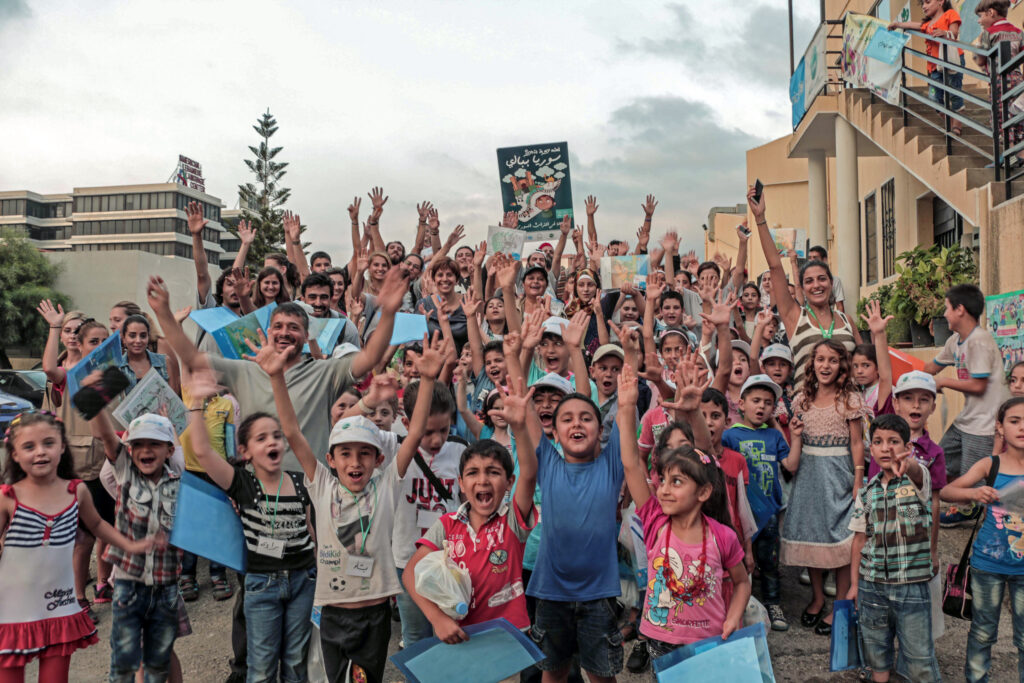
Funded by UNICEF (2014-2015), the EU – MADAD Trust Fund (2019) and managed by AVSI in partnership with “Syrian Eyes”, the project was implemented in Jounieh, Saïda, Nabatiyeh, Khiam and Marjeyoun, and aimed at rekindling the youngest refugees’ sense of belonging to Syria, thus enhancing their return to their homeland. The facilitators were Syrian refugees themselves: they were trained to overcome their own traumas caused by war in order to apply non-conventional learning methods specially for this project. The learning process was realized through non-formal educational material and songs. After the success of the first implementation, the project continued and will restart in 2021. The project resulted in significant media coverage and most of the main newspapers and television stations in Lebanon have reported about it.
Media: Le Orient-Le jour, 4 September 2014
Publication: ”Syria in my mind” – A journey to Syria’s heritage, 10 December 2015, Awwad
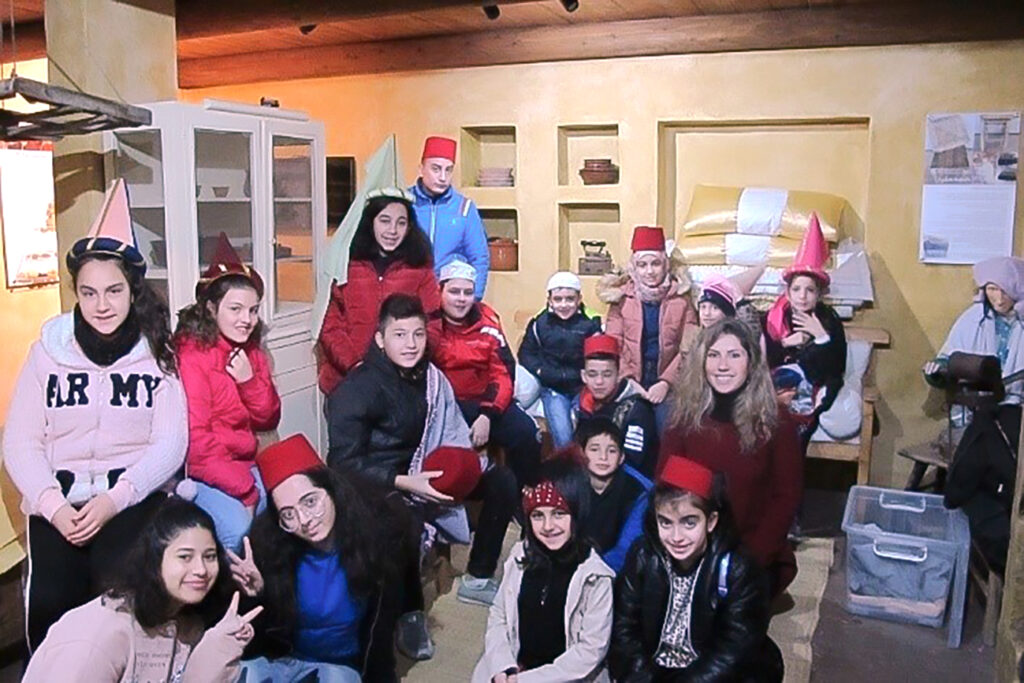
“Beit Sitti W Jiddi”
Time Frame: November 2016 – present
On the initiative of BILADI, an interactive ethnic museum was built with the appearance of an old traditional Lebanese house to make children discover the ancient way of living.
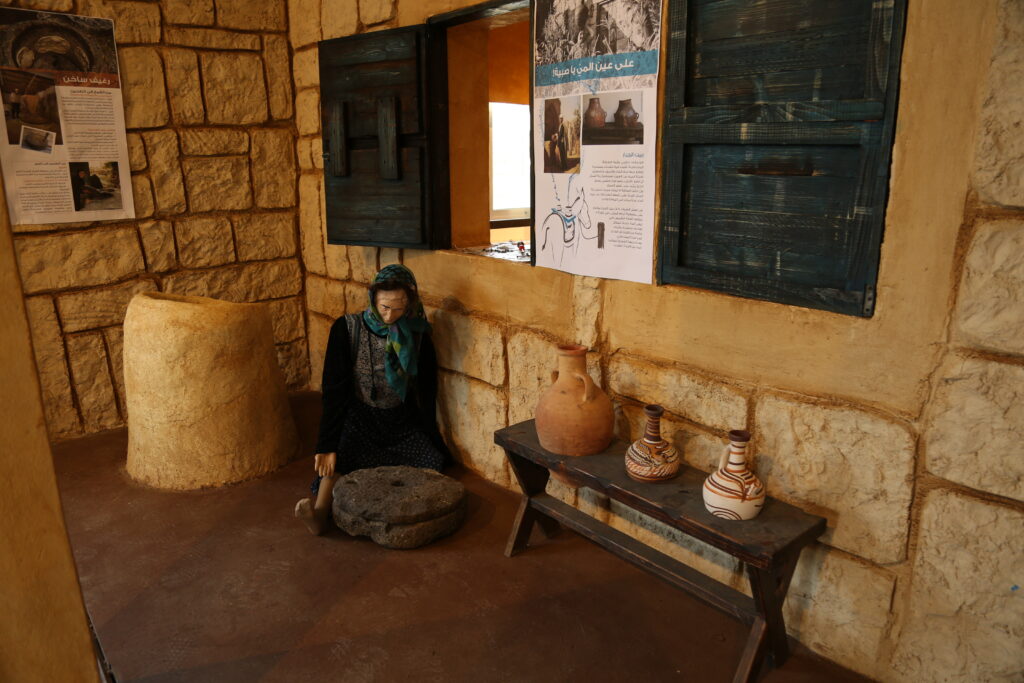
Funded by UNICEF and AVSI in partnership with the Ministry of Agriculture, the museums are located in Fanar and Abdeh and invite visitors to experience the components of the house, touch the furniture and equipment, smell Mouneh (traditional food products) and at the end, taste food samples which are prepared with the same ancestral methods that were used centuries ago. The house allows its visitors to discover the rural life and the importance of Mouneh, back then and today.
Media: http://www.lebanondebate.com/news/324657
http://www.almarkazia.net/Economics/Article?ID=146536
School Educational Trips
Time Frame: 2005 – present
From the early beginning, BILADI has organized school trips to allow students to visit important historical, archaeological and natural sites.
Every year, hundreds of young people take part in those trips over Lebanon in order to discover their natural and built heritage and acquire a better knowledge of their past through playful activities.